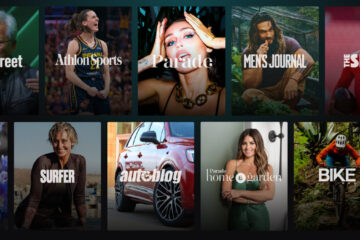If you’ve used the internet in the past 20 years, it’s highly likely that you have a Facebook or Instagram account (or both).
Since it was originally founded in 2004 by Mark Zuckerberg, Eduardo Saverin, Dustin Moskovitz, and Chris Hughes, what was originally meant to be a social media app exclusively for Harvard students slowly transformed into something quite extraordinary, growing into the mammoth business it is today.
💵💰Don’t miss the move: Subscribe to TheStreet’s free daily newsletter💰💵
In 2012, Meta (META) (which was still simply known as Facebook at the time) bought Instagram for $1 billion from founders Kevin Systrom and Mike Krieger. Instagram went on to become the definitive photo-centric social media app, spawning thousands of competitors and eventually becoming a platform for influencers to build their businesses.
Meta also purchased WhatsApp in 2014 for $19 billion. Today, it has more than 2 billion active users globally and is ranked as the most-used messenger app in the world.
For those of us who grew up on the internet, it’s hard to imagine it without these platforms. 3.35 billion people flock to Facebook on a monthly basis, while 2 billion go to Instagram.
Related: Instagram still has questions to answer following shocking glitch
But founder Mark Zuckerberg could be forced to sell Instagram and WhatsApp due to an antitrust lawsuit that begins today in a Washington courtroom.
Meta CEO Mark Zuckerberg faces a courtroom as photographers take his picture.
Kevin Dietsch/Getty Images
FTC vs. Meta: An antitrust brawl
The antitrust lawsuit, which was originally filed in December 2020 by the Federal Trade Commission, was filed after an investigation was conducted into Meta’s acquisitions of Instagram and WhatsApp.
The lawsuit alleges that Meta intentionally misused its monopoly on the social media market to buy Instagram and WhatsApp before they could threaten Meta’s businesses, violating federal antitrust laws in the process.
It also claims that Zuckerberg was well aware that the apps were a threat due to comments the CEO made in internal emails. One from 2012 calls Instagram’s popularity surge “really scary” and remarks, “We might want to consider paying a lot of money for this.”
Related: Meta Whistleblower reveals disturbing secrets in testimony
Meta’s stance has been vehemently against the claims.
“The evidence at trial will show what every 17-year-old in the world knows: Instagram, Facebook and WhatsApp compete with Chinese-owned TikTok, YouTube, X, iMessage and many others,” the company said in a statement.
“More than 10 years after the FTC reviewed and cleared our acquisitions, the Commission’s action in this case sends the message that no deal is ever truly final. Regulators should be supporting American innovation, rather than seeking to break up a great American company and further advantaging China on critical issues like AI.”
What the Meta lawsuit means for you
If the claims the FTC have leveled at Meta are found to be valid in court, Zuckerberg could be forced to spin off WhatsApp and Instagram into separate businesses.
While this will not change a consumer’s ability to use the social media platforms, it could mean major changes to how they operate or a potential shutdown, much like the one TikTok went through some months ago.
The last company to face a situation like this was AT&T. After its founding in 1885, the American Telephone & Telegraph Company also went through a pattern of buying up smaller companies, leading to a chokehold on the market. In 1913, AT&T started to face pushback for its actions and was forced to sell its controlling stake in Western Union after threats from the Justice Department.
While it was challenged several times, it wasn’t until 1974 that another Justice Department lawsuit was filed that eventually would break up AT&T’s monopoly. In Jan. 1982, it broke its business up into seven smaller companies known as “Baby Bells.”
While it’s impossible to forecast what could come next for Meta and Zuckerberg in the case, one thing is for sure: there’s change on the horizon.
Related: Meta Platforms fights for its life in historical antitrust battle


